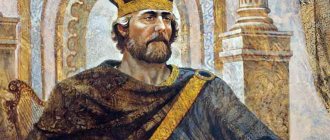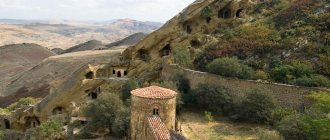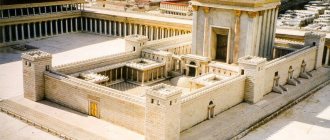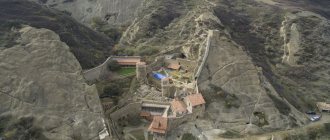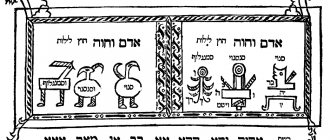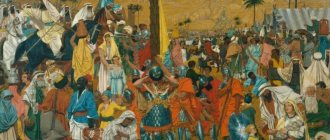The story from the Bible about David and Goliath is familiar today not only to believers. It became famous for its amazing plot: a shepherd defeats a huge soldier with a sling, relying only on God's help. Scientists have found evidence that such a battle actually took place, but who the winner actually was - different hypotheses are put forward.
Historical background: who are the Philistines
To understand biblical history, it is worth mentioning the essence of the conflict between the Israelites and the Philistines.
After the Jews freed by Moses from Egyptian captivity entered the promised land, Canaan, they began to be overcome by local warring tribes, including the Philistines. An interesting fact is that the Philistines were not the original people of Canaan: according to the Bible, these are tribes that came to the promised land from the island of Crete. Crop failures and hunger forced them to leave their homes. At first, the Philistines began to advance towards Egypt, but were defeated by the army of Ramses III. The Egyptians enslaved part of the people, and the other part was given the land of Canaan to settle: the region in the Jordan Valley. Now this territory belongs to Palestine. The Philistines created five independent cities, each ruled by its own prince. At the same time, the people were united in waging wars.
The Jewish people, who settled in the promised land, were constantly attacked by the Philistines. The Israeli kings Samuel, Saul, and David waged fierce wars with them. The trail of the Philistines is found in another famous biblical story about the strong man Samson. Delilah, a Philistine, cut off the hair of the powerful Jew - the secret of the power that helped Samson defeat her people. It is thanks to the Philistines that the establishment of the kingdom of Israel takes place: after all, it was necessary to repel the attacks of a warlike tribe.
Why did the Philistines triumph over God's people? The answer lies in their art of forging iron. But according to the Bible, the Israelites did not have a single blacksmith. Only King David was able to defeat the Philistine army. Having captured the city of Edom, he took possession of the fossils of the Sinai Peninsula and learned the secret of making weapons from iron. The people of Israel began to live in relative peace, however, occasional raids by the Philistines were observed. The godly Israeli king Hezekiah finally put an end to them.
Psalter
David will leave behind another monument, not made by hands, his immortal psalms. For his heartfelt poems and prayers, written by inspiration from above, David would later be ranked among the prophets, and it was with his name in the Bible that the most poetic book, the book of praise - the Psalter - would be associated for centuries.
“The Psalter as a book did not take shape right away; it clearly contains psalms that David could not write. On the rivers of Babylon, psalms about the Babylonian tribes that appeared several centuries after the death of David. Of course, he could not write about this, just as, for example, Lomonosov could not write about Soviet power, because he died long before its onset. The genre of psalms itself was, not that he invented it; some songs were probably composed before David, but it was brought to some perfection. So, Russian poetry begins with Pushkin, although Pushkin is not the first poet who wrote in Russian, many others wrote before him, but Pushkin brought poetry in Russian to such a high level that since then, we can probably say, We have this - in a sense, all further Russian poetry - it is based on Pushkin.” — Andrey Desnitsky biblical scholar, Institute of Oriental Studies of the Russian Academy of Sciences.
The Psalter is an intimate conversation between a person and God, an appeal to the heavenly creator, in a variety of circumstances of earthly life. From the depths of despair and with grateful praise, in sorrow and joy, in wanderings and prosperity. Therefore, the Psalter became a universal prayer for many centuries, lines from it are still heard today in Orthodox churches, at every service.
“Blessed is the man who does not walk in the counsel of the wicked,” we know these lines well in Slavic, but this is how the Psalter begins in Hebrew. And perhaps this is one of his main discoveries, that in order to live with God, one must give up something, not walk in the path of the wicked, not take the path of sinners, not sit in the congregation of scoffers, impudents, corrupters, you can These words can be translated differently from the Hebrew language. Maybe he wasn’t the first to say it, but no one said it as beautifully as he did. That a relationship with God is always a deeply personal relationship, if it exists. Not as an interesting book, not as entertainment, but as an animal that strives for a source of clean, cool water, and simply cannot live without it - this is the image of David, perhaps one of the most striking.
The God-inspired Psalms of David contain detailed prophecies about the messiah and redeemer of mankind - Christ and about his kingdom. However, many modern scientists doubt that pure, sublime prayers could have belonged to the first king of Israel, who, according to the customs of that time, was a cruel, merciless man.
“David was, first of all, a killer, a very strong and cruel leader. He killed a lot of people, so calling him a poet is something like propaganda. Most of the kings at that time did not even know the alphabet; they had scribes who wrote and read to them, but they themselves could not do this. They could compose poems orally, but they were unlikely to write them down. The king was not supposed to write, but to win battles, expand his kingdom, and, in general, be a hero.” — Gershon Galil Professor Haifa, Israel.
Over the 40 years of his reign, David manages to expand the kingdom of Israel to the borders once promised by God, from Egypt to Lebanon and from Egypt to the Euphrates, to the Mediterranean Sea.
David - shepherd who became king
David was the second king of the Israelites. But before ascending the throne, he suffered many victories and hardships. Growing up in the family of a wealthy landowner, David was drawn to nature from childhood, admired God’s creation, and learned to be compassionate and generous. It is these qualities that will later make him one of the most powerful and fair kings. To this day, David is revered by Jews; not only people close to the Christian faith know about him, but also those far from it. A descendant of the tribe of Judah, David, is mentioned in the genealogy of Jesus Christ.
The future king began by herding sheep - this was his responsibility as the youngest in the family. It is as a young shepherd that we first meet him in the Bible. But already here his beauty, stateliness and courage are emphasized. The story of David as the conqueror of the Philistines begins with his duel with the mighty warrior Goliath. This episode turned the life of the young shepherd upside down, making him a popular favorite, and later the great king of Israel.
The time of his reign is rightfully considered the golden age of the Jewish state. David carries out economic and political reforms, rids the country of frequent raids by the Philistines.
David was an excellent musician and singer: his songs still live in the biblical book of Psalms.
David and Goliath: the beginning of the confrontation
Fame and popular love were brought to David by his duel with the mighty Philistine warrior Goliath.
The confrontation between the Israeli army under the leadership of King Saul and the Philistines continued for forty days. The latter, feeling their superiority, in every possible way humiliated and insulted not only the soldiers of Israel, but also God. The most powerful and fearsome warrior named Goliath was especially active. He stepped forward, gleaming with heavy armor, armor, shield and sword. None of Saul's troops dared to fight with him. This was the ancient tradition: first, the two strongest warriors from each side fight.
Unsuspecting David at this time was doing his usual thing: tending sheep. His older brothers fought for the Israeli army. Since the confrontation between the two sides dragged on, the father asked David to take some food to the brothers. Finding himself in the camp of Saul and his soldiers, David was indignant, why does no one fight back Goliath, who so insults the Israeli people? Finding no answer, the young man decided to defend the honor of his people. So, Goliath and David met for the first and last time.
The battle of David with Goliath in the valley of Ela [↑]
From an ancient mound named Azeka
there is a view in all directions.
In the west the Mediterranean Sea sparkles, from Hadera to Ashdod. In the east, the Judean Mountains rise from Jerusalem to Hebron. And below, below us, stretches the beautiful valley of Ela. All around you can see Jewish settlements built here after the creation of the state in 1948. The entire area is called Shfela
- Lowlands of the Judean Mountains.
In ancient times, the Jews lived in the mountains, and the Philistines captured the coastal plain. They wanted to enslave the Jewish tribes and a large army went east to the mountains. The first Jewish king, Shaul, came out to meet them with his army. The clash took place in the Ela Valley. The armies lined up against each other, and suddenly a giant emerged from the ranks of the Philistines. His name was Golyat (Goliath
)
.
Goliath, confident in his invincibility, challenged the Jews to field a chosen warrior who would enter into single combat with him. And then the victorious people will enslave another people. But none of the Jewish troops dared to come out to meet him. One sight of a three-meter tall Philistine, covered in armor and armed to the teeth, was awe-inspiring. Even Shaul’s promises to enrich the daredevil and give him the king’s daughter as his wife could not cheer anyone up. For forty days he insulted and cursed the Jewish people and the Most High, the G-d of Israel.
And suddenly a voice was heard in the Jewish camp. It was David, a young man originally from the city of Beit Lehem (aka Bethlehem
), who came down to visit his older brothers at the front. He was a shepherd and had only experience of protecting his flock from wild animals. David was not ready to tolerate this “uncircumcised” Philistine humiliating the Jewish army - “the battle formations of the living G-d!”
He goes out with a stick and a sling to meet Goliath, to meet the machine of destruction that brings fear to the whole people. David goes out to battle in the name of the Almighty, proclaiming the goal of victory: “So that everyone (on) the earth may know that Israel has a G-d! ... that the Lord will not save you with sword and spear, for this is the battle of the Lord, and He has given you into our hands.”
David wins thanks to his spiritual courage and inner modesty. He knows what he is fighting for. “And David defeated the Philistine with a sling and a stone... and he took his sword... and he cut off his head with it... And the men of Israel and Judah rose up and shouted and began to pursue the Philistines...” When you read the description of TaNaKha on Azek Hill, ancient events simply come to life before your eyes.
Over the centuries, this battle became a symbol of the victory of the small Jewish people over overwhelming enemy forces. A victory of the spirit over brute physical force. It is no coincidence that many compare Israel's victory over numerous and well-armed Arab armies during the Six Day War in 1967
year with this battle.
Around the hill there are many forest paths and pleasant places for family recreation - in the lap of natural nature of the land of Israel.
David's Victory
King Saul is amazed at the young man's bold decision. He offers David good armor in order to protect him at least a little from the mighty Goliath. The young man refuses, because the armor hinders his movements and is unusual for him. All the young man does is go down to the stream and collect river stones for his sling - the one David used to defeat Goliath later.
David is not afraid of death: the main thing for him is to protect the honor of his people and not allow God to be “blasphemed.” Seeing a fragile young man going out to fight the giant Goliath without armor or a sword, with a few stones and a sling, the Philistines begin to ridicule the Jews even more. “I come against you in the name of the God of Israel,” David says, and Goliath falls silent. The giant sees a stone flying at his head from the young man's sling. David hits the giant right in the head, and he falls dead. Taking Goliath's sword, the young man cuts off his head, and this is how David, with Goliath's head, sends the startled Philistines fleeing. The Israeli army catches up with them and defeats them. David arrives in the capital as a winner.
Swift Stones
In response to this statement, Israeli experts began to study stones that could be used for sling throwing. Several countries conducted interesting experiments to measure the speed and impact force of those same stones launched from a sling. Alan Uigbart and Ron Compson, ballistics experts from Glasgow, used a high-speed video camera and were amazed to find that stones fired from a sling reached speeds exceeding 100 kilometers per hour. Experiments in other countries confirmed that these stones could easily pierce a person’s soft tissue and break his bones.
It has now been proven that the seemingly incredible episode from the Bible no longer raises the slightest doubt.
Myth or reality?
There is still debate between biblical scholars and atheists about the veracity of this biblical story. Even Goliath and David themselves are questioned. Atheists motivate their point of view by the fact that there is no real evidence, artifacts or written evidence of the existence of one and the other biblical hero.
On the other hand, Josephus Flavius, a Roman historian, wrote that such a duel took place in history. In addition, in 1996, archaeological evidence was found that Goliath and David existed.
In the valley of the Judean Mountains, a skeleton almost three meters long was discovered with a severed head in which a stone was stuck. After conducting a series of studies, archaeologists found that the time period to which this skeleton belongs is approximately 3000 BC. Thus, it was proven that the story is most likely not a myth, but a reality.
David and Goliath in art
The story of the confrontation between an unarmed shepherd and a mighty warrior has attracted artists for many centuries. People still wonder how David defeated Goliath. Sculptors, artists, and filmmakers turn to this topic again and again. Titian, Caravazdo, Guido Reni are just a few artists whose paintings depict the history of the fight.
The sculptors Donatello, Michelangelo, Lorenzo Berini immortalized the heroes in stone. Goliath and David appear on frescoes and objects of Christian worship. Feature films have been made on this topic more than once. For example, the film by Ferdinando Baldi (1960), an animated film released in the USA in 2003, and a BBC documentary of the same name.
As you can see, the story of David and Goliath is alive, it still worries humanity. It gives Christians a powerful charge of faith, and secular people a reason to think about courage, honor and dignity.
Goliath
Goliath - (Hebrew גלית - Golyat ) - a huge Philistine warrior, a descendant of the Rephaim giants in the Old Testament. Young David, the future king of Judah and Israel, defeats Goliath in a duel with a sling and then cuts off his head (1 Sam. 17:49-51). The victory of David over Goliath began the offensive of the Israeli and Judah troops, who expelled the Philistines from their land (1 Sam. 17:52).
Did David kill Goliath?
There is a widely known legend about how the young man David killed the Philistine hero Goliath:
- giant Philistine => 1 Samuel 17:4-7
- reviled Israel => 1 Samuel 17:8-11
- David offered to fight him => 1 Samuel 17:32-37
- David struck him down => 1 Samuel 17:48-51
- David took possession of his sword => 1 Samuel 21:9
What is less well known is that elsewhere in the Bible the killing of Goliath is not attributed to David at all. Let's quote this place:
19 There was another battle in Gob; Then Elchanan, the son of Jagare-Orgim of Bethlehem, killed Goliath the Gittite, whose spear shaft was like a weaver's beam. (2 Samuel 21:19)
Could this be some other Goliath? No, all the signs are the same:
- "Goliath of Gath" (i.e. a Gittite)
- “The shaft of his spear is like a weaver’s beam.”
3 And the Philistines stood on the mountain on one side, and the Israelites on the mountain on the other side, and between them there was a valley. 4 And a single combatant named Goliath, from Gath, went out from the camp of the Philistines; He is six cubits and a span tall. 5 A copper helmet is on his head; and he was clothed with armor of scales, and the weight of his armor was five thousand shekels of brass; 6 Brass kneepads were on his feet, and a brass shield on his shoulders; 7 And the shaft of his spear is like a weaver's beam; and his spear was six hundred shekels of iron, and before him went an armor-bearer. (1 Samuel 17:3-7)
It is clear that both David and Elhanan could not kill the same person, which means that in at least one of these two cases there is an error in the Bible. It is interesting that in another “historical” book of the Old Testament - Chronicles - an attempt is visible to somehow eliminate the contradiction between the two testimonies of the book of Kings.
It says that:
5 And again there was war with the Philistines. Then Elhanam the son of Jairus smote Lahmiah the brother of Goliath, the Gathite, whose spear-shaft was like a weaver's beam. (1 Chronicles 20:5)
Here there is already a third version of the same event. It is interesting that such a name as “Lahmi” does not appear anywhere else; Apparently, the Semitic peoples of Palestine did not have it. It seems that the author of Chronicles, trying to save the version of David’s heroic deed, came up with another opponent for Elkhanan (he calls him Elkhanam) and called him the first word he came across.
Related article: Bible, interesting facts
At the beginning of the story of David's emergence as king, it is said that he defeated a three-meter-tall warrior named Goliath. It is clear that such wars as Goliath will not run and fight with wooden swords, spears, armor, etc. things. He was truly a “healthy” warrior, but we must take into account that all the Philistines, as we know, were not weak, but tall and healthy people.
So, David defeats Goliath at the beginning of his “career”, but then life goes on and goes on as usual. People grow, multiply, mature, go about their business, take care of pressing problems, make plans, etc.
New wars break out, families have not one, but several children, some die in childhood (like one of King David’s brothers), some in their youth, some in adulthood in a war with foreigners. And we read about this in 2 Samuel chapter 21:
15 And war broke out again between the Philistines and Israel. And David and his servants went out with him, and fought against the Philistines; and David grew weary. 16 Then Ishbi, one of the descendants of Rephaim, whose spear weighed three hundred shekels of copper and who was girded with a new sword, wanted to smite David. 17 But Abishai the son of Zerui helped him, and smote the Philistine and killed him. Then the men of David swore, saying, Thou shalt not go out with us again to war, lest the lamp of Israel go out. 18 Then there was another war with the Philistines in Gob; then Sovohai the Hushathite killed Safut, one of the descendants of the Rephaim. 19 There was another battle in Gob; Then Elchanan, the son of Jagare-Orgim of Bethlehem, killed Goliath the Gittite, whose spear shaft was like a weaver's beam. 20 There was also a battle in Gath; and there was [there] one tall man, having six fingers and toes, twenty-four in all, also of the descendants of Rephaim, 21 and he reviled the Israelites; but Jonathan the son of Saphai, David's brother, killed him. 22 These four were from the family of Rephaim in Gath, and they fell by the hand of David and his servants. (2 Samuel 21:15-22)
Goliath, whom David killed, could have had a brother, brother or cousin. Or, as we would now call a namesake, because the name Goliath can be given to more than one boy. And even from the same city. Moreover, “Rephaim” is the name of the giants; perhaps they had a dynasty and among them was not one Goliath, but several.
Moreover, as I already said, the Philistines were not short in stature themselves and they were strong. So, it is not surprising that the Israelis had to deal with a large number of “big guys”, and even with similar names.
Related article: The name Jesus - in 93 languages of the world
PS Razon, Rezon, Jethro, Jethro, Jethro, Raguel, Reuel - you may not believe it, but if you believe the biblical encyclopedia, then all these names belong to the same person.
The Jews have such a language that one and the same person can be called by different names and this will not be a mistake. Even in the Russian language there is something similar, and probably in others too. You can call me Sasha, Alexander, Shura, Alex, in German it sounds like Alexander. So, everything looks very clear and transparent if you think a little and look for information about the issue that interests us.
